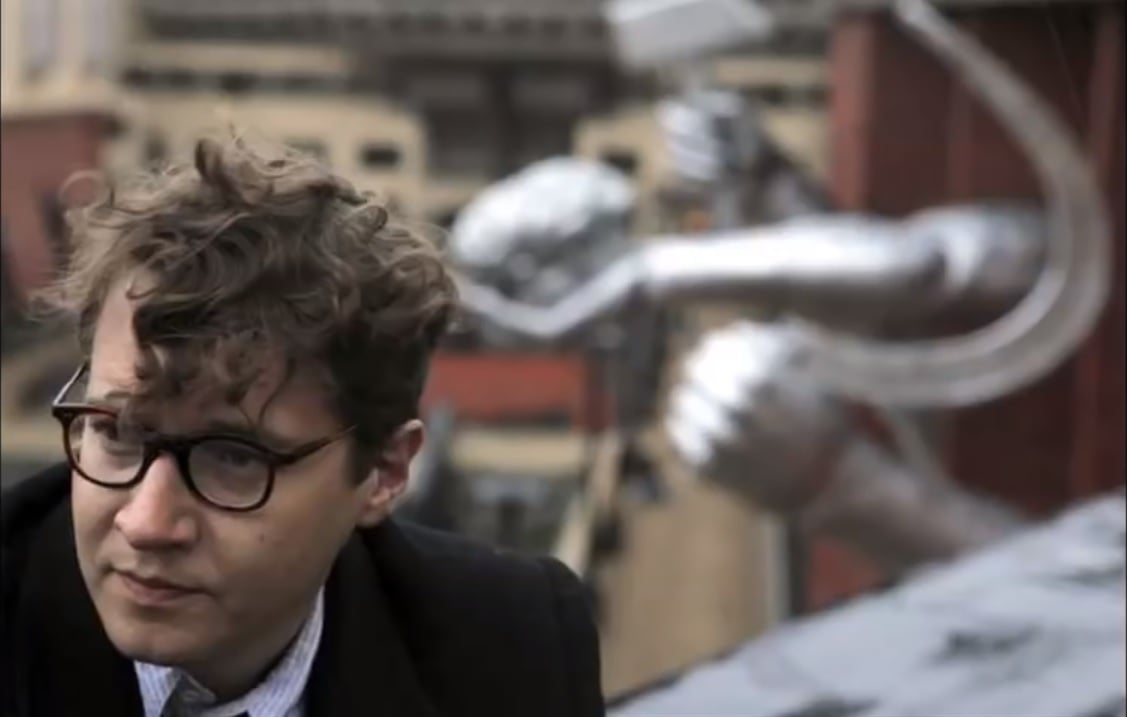
The long-awaited opening of DAU, the now-notorious immersive film project about Soviet Russia by Russian filmmaker Ilya Khrzhanovsky, which has been in the works for a decade, has finally debuted in Paris—but it hasn’t gone exactly as the organizers had planned.
Only one of the sprawling installation’s venues, the Centre Pompidou, was fully operational when the exhibition opened on Thursday, while another (the Théâtre de la Ville) was functioning only in part, according to the New York Times. The third site, the Théâtre du Châtelet, was closed entirely.
Visitors are reportedly waiting in hourlong lines to get through security and acquire “visas” (which are required for entry) and are asked to fill out an “emotionally invasive questionnaire” so they may be guided through the experience, according to the newspaper. And although attendees must forfeit their electronic devices at the entrance to heighten their experiences, workers inside were set up on laptops and had Nespresso machines. “Welcome to chaos,” one employee said.
This confusion follows the cancellation of DAU‘s Berlin premiere last fall after critics complained of Khrzhanovsky’s proposal to rebuild the Berlin Wall for the occasion. Later, the scheduled January 24 opening in Paris was delayed because organizers had not yet secured police approval.
There are also troubling allegations surrounding the event. The film “set out to condemn Soviet totalitarianism, but part of me worries that, by operating such an accurate facsimile, of the regime for such a long time, Khrzhanovsky may have become a despot himself and overseen behaviour that crossed the line,” wrote Albina Kovalyova, who helped cast the film and later directed a documentary about its creation, in an article for the Telegraph. “I have been left extremely troubled by what I have seen.”
Another report, published in 2011 by GQ, alleged that a young female director came to interview for a job with Khrzhanovsky and was asked to wait for him for six hours. After he arrived, he asked her about how she lost her virginity and if she would have sex with a man even if she did not know his name.
Khrzhanovsky convinced backers of DAU to fund the project and give him complete creative control on the strength of his award-winning film 4. But DAU, which he began shooting in Ukraine in 2009, quickly became a cultural experiment, for which Khrzhanovsky erected a fully operational facsimile of 1938 Moscow. He arranged for actors to live in the installation for years, recording their every move. The set—or the Institute, as it was dubbed—has been likened “the Soviet Truman show.”
DAU “is a work of art that will challenge visitors emotionally, spiritually, and psychologically,” Kovalyova wrote. “[But] as someone who’s been closely involved, I worry that fictional abuse turned into the real thing.”
One of the installations at the Theatre du Châtelet, one of the three locations of the Russian filmmaker Ilya Khrzhanovsky’s DAU project in Paris. Photo by Philippe Lopez/AFP/Getty Images.
One of the installations at the Theatre du Châtelet, one of the three locations of Ilya Khrzhanovsky’s film project DAU in Paris. Photo by Philippe Lopez/AFP/Getty Images.
A screenshot from DAU. Photo courtesy of Ilya Khrzhanovsky.
Photography from the “Institute” in Kharkiv, Ukraine. © Orlova.
A screenshot from DAU. Photo courtesy of Ilya Khrzhanovsky.
The entrance at the Theatre de la ville, one of the three locations of Ilya Khrzhanovsky’s film project DAU in Paris. Photo by Philippe Lopez/AFP/Getty Images.